[ad_1]
You see them crowding checkout counters at grocery stores — a rainbow of bubble-gum pink, lime green and blueberry packets, slender and upright, like a multicolored chorus line of dancers tempting an impulse purchase. At the gym, they’re dissolved into enormous jugs of cherry-tinted water.
They’re especially prevalent on TikTok. Just search #watertok for a flood of #watergirlies, clutching Stanley tumblers at their #waterstations, which are crammed with neon-bright hydration powders and flavored syrups. #Wateroftheday? How about Strawberry Birthday Cake Water. Or Caramel Apple Sucker Water.

In L.A., water rules everything around us. Drink up, cool off and dive into our stories about hydrating and recreating in the city.
“If your water isn’t turning your mouth blue, you’re apparently hydrating wrong,” one skeptical dietitian observed on TikTok last year.
Hydration supplements in the form of powders, tablets and liquid additives have become a norm among consumers over the last decade, and are more popular than ever. The global electrolyte hydration drinks market was valued at $1.72 billion in 2023, according to Data Bridge Market Research. And it’s growing. The business of boosting one’s H2O is projected to reach $3.26 billion by 2031.
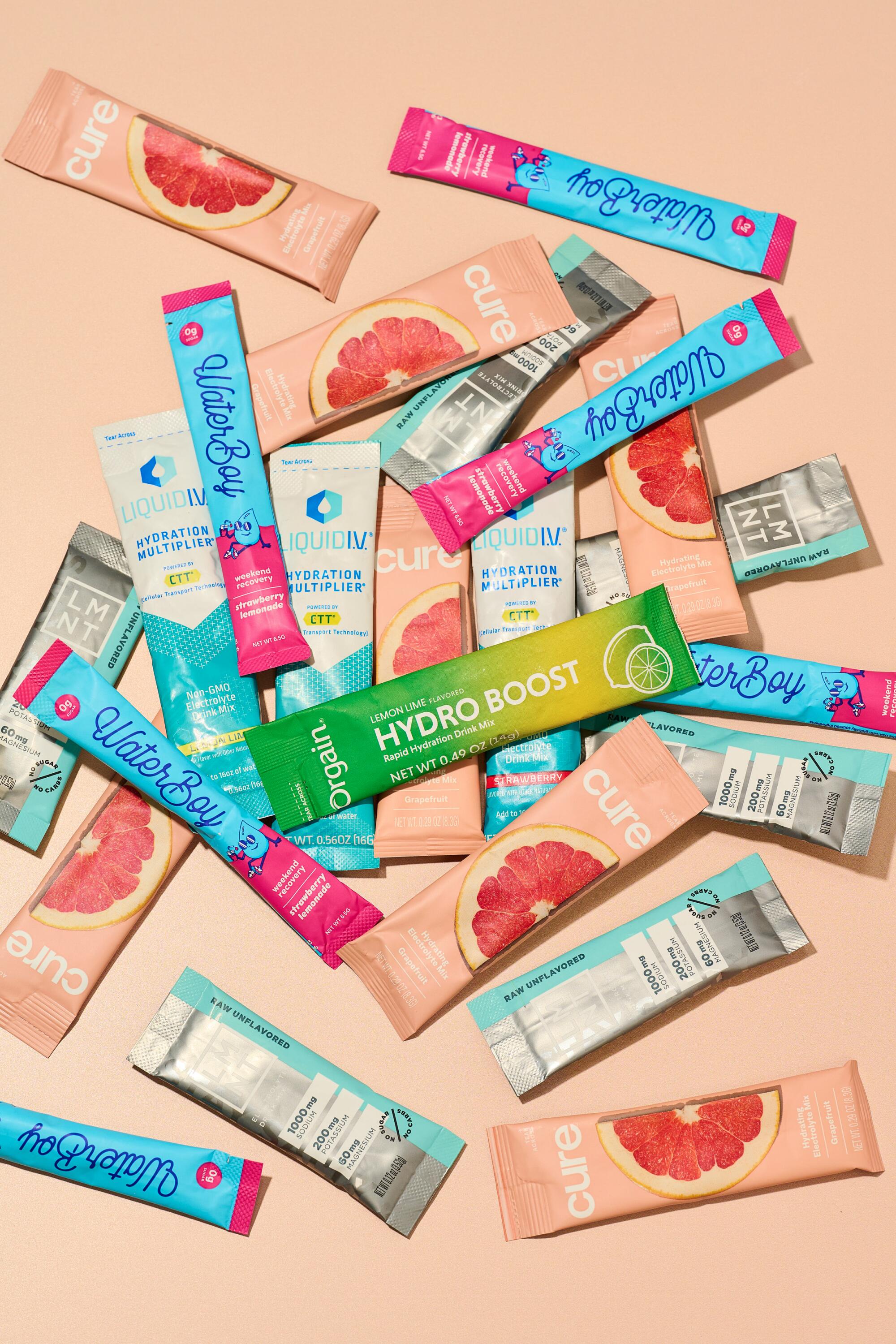
Hydration supplements are sold at most major grocery stores around L.A. The market for these powders has grown in recent years.
Why hydration is important
This bonanza of new hydration products plays to a basic but critical need: More than 50% of people around the globe, including in the U.S., are chronically underhydrated, according to the National Institutes of Health, which cites worldwide surveys. (“Underhydration” refers to people who don’t meet the recommended daily fluid intake, whereas “dehydration” refers to a more severe fluid deficit.)
Those statistics are concerning, considering hydration is the oil to our body’s engine. It aids in muscle repair, digestion, energy and focus. It’s necessary for lubricating joints, regulating body temperature and removing toxins from the body. It carries nutrients to cells and is crucial for hormonal balance, which can affect blood pressure and the menstrual cycle. Our level of hydration also contributes to our hair and skin health.
“Proper hydration keeps every system of the body running smoothly,” says dietitian-nutritionist Vanessa King, a spokesperson for the Academy of Nutrition and Dietetics.
After years of striving to adhere to a 1945 U.S. Food and Nutrition Board recommendation of eight glasses of water a day, it tracks that we’d want to zhuzh up the ritual. (Some studies, however, suggest we need less water daily and that water requirements vary for individuals.) But is there any actual health value to these water additives? Do they aid with hangovers, enhance our workouts or energize us? Or are they simply there to make plain old water taste like a piña colada?
It depends on what product you’re peppering into your Hydro Flask.
“Hydration supplements can replenish you when your fluid status is down — so after workouts, for hangovers or when you’ve been sick,” says Dr. Vijaya Surampudi, an endocrinologist, nutrition specialist and professor at UCLA. “Depending on their composition, some get better absorbed and improve your hydration. Some are just for flavoring and they can have a lot of sugar or artificial coloring — it can be like drinking a soda.”
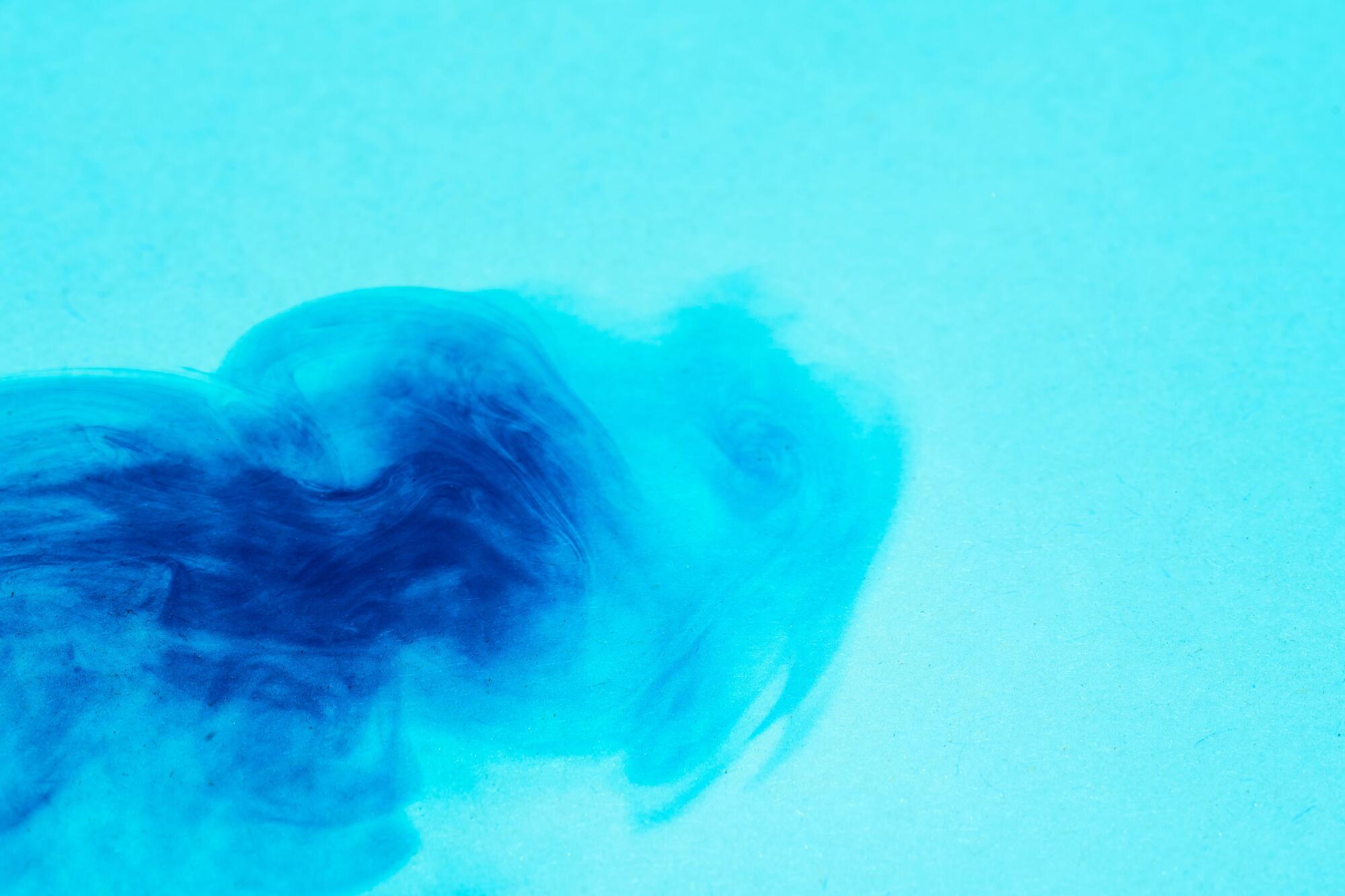
Hydration supplements can help replenish your body’s fluid status after workouts, colds or when you’re hungover, according to UCLA professor Dr. Vijaya Surampudi.
She notes that because these powders and tablets are categorized as supplements, they aren’t regulated by the U.S. Food and Drug Administration. “So you just have to trust what’s on the label.” (To fill this gap in regulation, some sleuthing social media users have even carved out a niche content genre in which they analyze the ingredients listed on the labels of celebrity-backed supplements.)
What’s in hydration supplements?
More often than not, a hydration powder or tablet includes a mix of four main ingredients: electrolytes (such as sodium, potassium, magnesium and chloride), a carbohydrate (such as glucose), vitamins (typically B vitamins, sometimes C) and amino acids. Depending on their quantity, and how they interact with one another, those ingredients may help hydrate your body more efficiently.
How these ingredients chemically interact with one another directly affects hydration. Water follows sodium for absorption, for example, and sodium molecules travel best with glucose molecules across the lining of the gastrointestinal tract, Surampudi says, so carbohydrates like sugar are not a bad thing in your supplements — they’re actually preferred.
Even so, it’s a delicate balance. A supplement with too much sugar may work against your aim to be healthier.
“The body stores excess sugar for energy later, and that’s stored as fat,” Surampudi says. “And if you drink too much [sugary fluids], that can lead to health complications.”
While sugar and sodium help fuel hydration, those with diabetes or high blood pressure should be careful with hydration supplements, paying attention to their sugar or salt intake.
“Use it with caution and discuss with your healthcare provider,” Surampudi says.
Do we need them?
Hydration supplements aren’t unsafe for most people to take daily if the sugar content is moderate — but they’re often not necessary, says Dr. Christopher Duggan, editor of the American Journal of Clinical Nutrition and a Harvard Medical School professor.
Most adults and children don’t meet daily hydration recommendations, he says, which is currently 13 eight-ounce cups of fluid for healthy men and nine for healthy women, according to the National Academy of Medicine. (Note this recommendation includes all fluids, not just water. And we tend to get 20% of our water intake from food.)
“So if adding a light flavoring gets them to drink more water, that’s probably not a terrible thing,” Duggan said. “But if the expense is high, it’s ultimately not worthwhile. Because unless you’re participating in vigorous exercise or your GI tract doesn’t work normally, water alone is probably an adequate hydration.”
Some hydration supplements even contain ingredients that are not hydrating when consumed in large quantities, such as caffeine. Though caffeine is a diuretic, consuming up to 400 mg of it daily can actually help with hydration, according to the Academy of Nutrition and Dietetics’ King. Other flavored powders contain various B vitamins, which may cause problems in excess.
“B6, if you consume too much of it because you’re getting it elsewhere, there’s a risk for some people of neuropathy, which means damage to the peripheral nerves (which are outside of the brain and spinal cord), and which can cause numbness and tingling, among other things,” Surampudi said.
Surampudi recommends consuming hydration supplements only in moments when your body is especially challenged.
“If there’s a situation where you’re fluid down, or in a high altitude or in an extremely hot climate, that’s where these things can be helpful,” she said.
How 8 top hydration supplement brands perform
So take your hydration boosters with a healthy dose of skepticism. Here’s an analysis of eight hydration supplements — the good, the bad and the meh — according to L.A.-based dietitian Katie Chapmon.
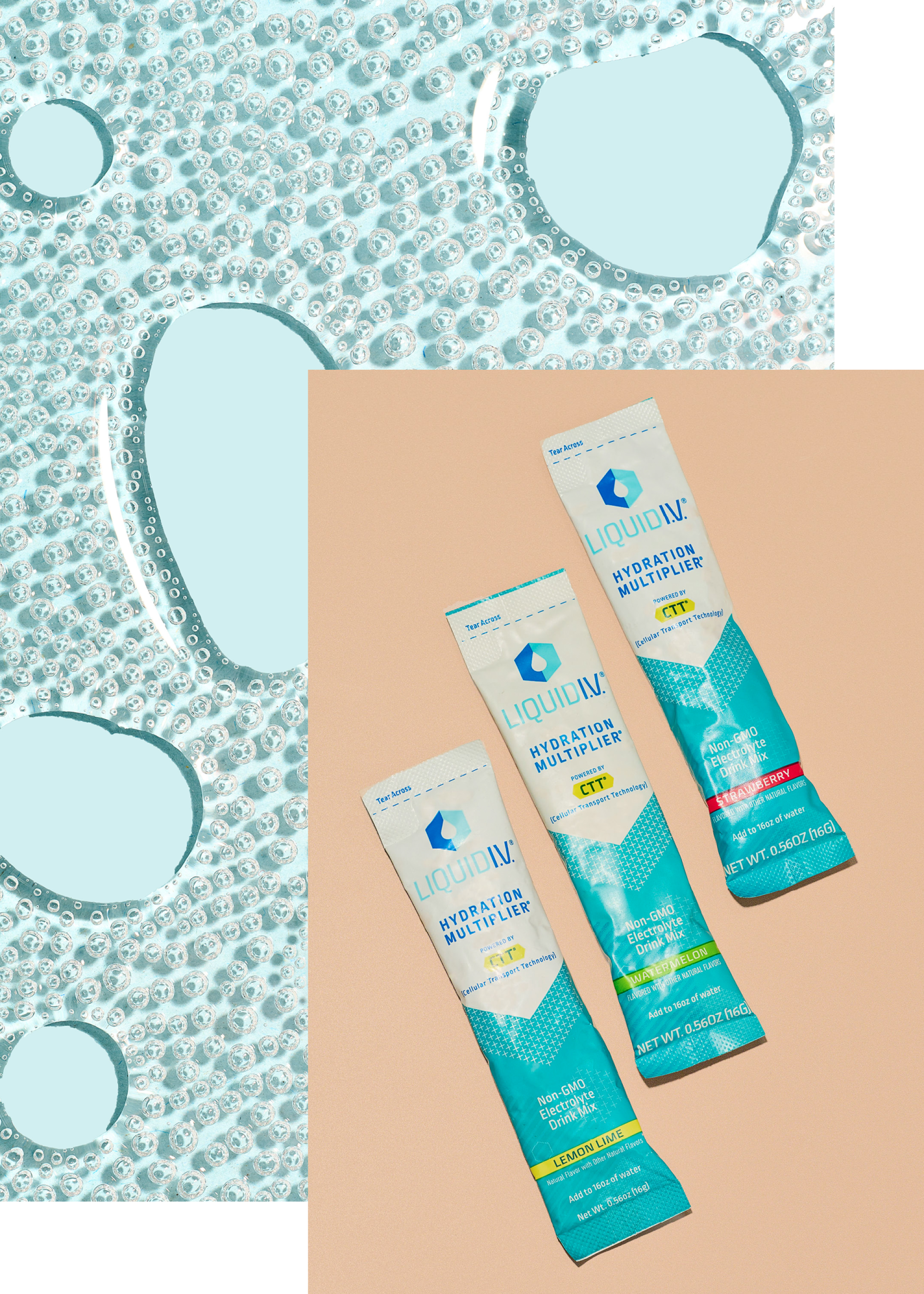
Liquid I.V.’s Hydration Multiplier.
(Rebecca Peloquin / For The Times)
Liquid I.V.’s Hydration Multiplier. “I would not have someone choose this to use every day because the added sugar is really too much — it’s the first and second listed ingredients. The other thing is: They boast, on their website, that the hydration multiplier has ‘3x the electrolytes of the leading sports drink.’ And that may be wonderful for someone who is doing very high-impact sports or who would require serious electrolytes replacement, but it’s not for the average person. Electrolytes balance out our cells, but if we have too much it throws off that balance and our cells can actually become oversaturated; it can make it harder for that cell to work and to get hydrated. This is why a more moderate amount of electrolytes may be a better option for athletes and heavy sweaters.”
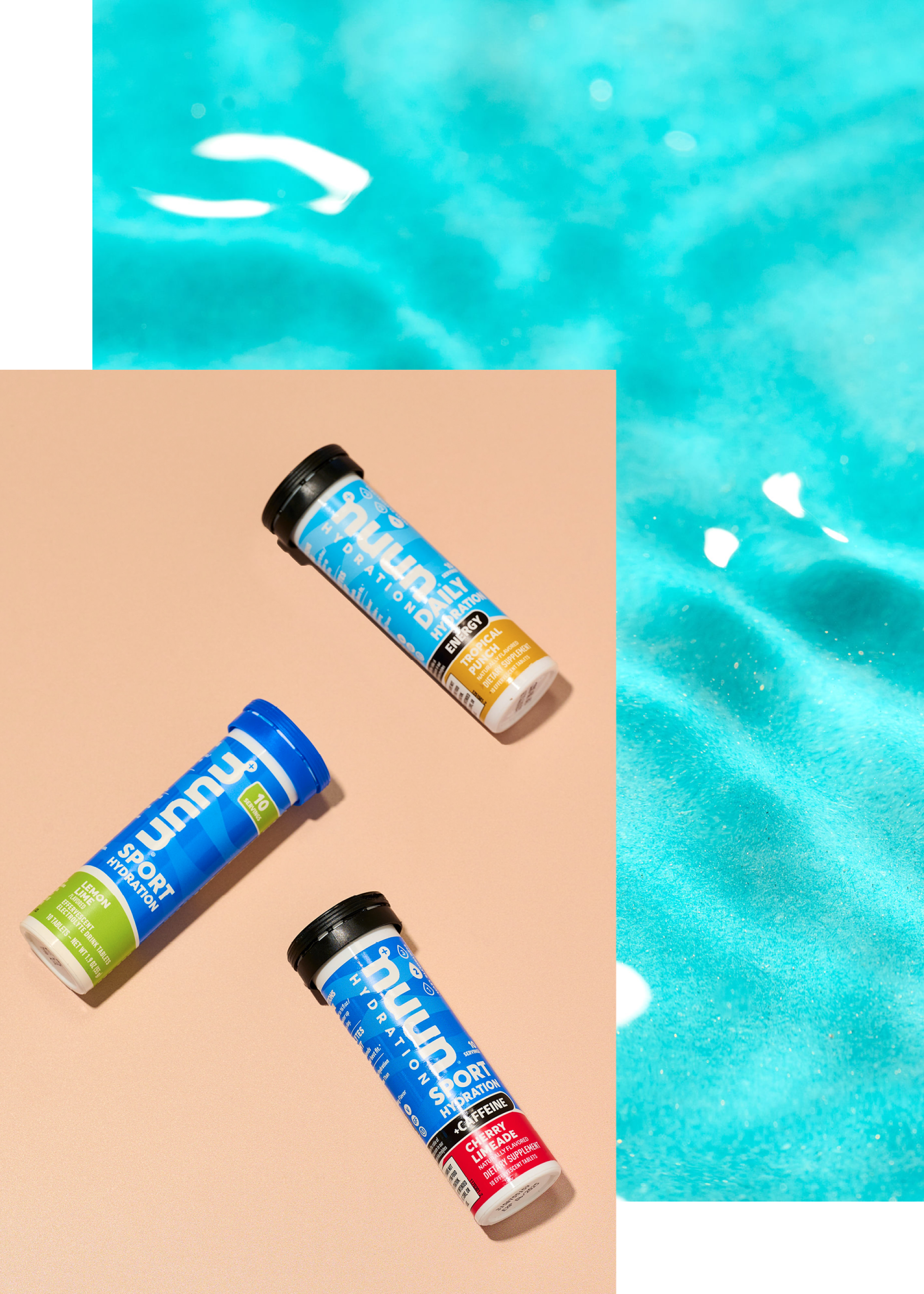
Nuun Sport Hydration.
(Rebecca Peloquin / For The Times)
Nuun Sport Hydration. “This one has a lower amount of added sugar. It might be for someone who wants to flavor their water — which, alone, would help increase fluid intake and therefore their hydration. It has electrolytes — your sodium, magnesium, potassium, chloride — but I would not have someone use this from a serious athletic standpoint because athletes need to not only replenish electrolytes lost but also sugars lost through expelling energy through exercise. Would it help hydrate cells? Sure, a little bit. But most people will end up drinking this because they like the flavors — and a lot of people like Nuun’s flavors.”
Cure Hydrating Electrolyte Drink Mix. “I like this one as a water flavoring — out of all of them, it was one of my favorites for that. But it’s not a true electrolyte blend. It includes sodium and Himalayan salt. But there’s no chloride and magnesium. This would not be a recommendation for gym-goers or athletes as it doesn’t contain any sugars, which are needed for adequate electrolyte and energy replenishment. It’s just a water flavoring because it contains lower amounts of sodium and potassium than other hydration alternatives. The ingredients are straightforward and clean — it has no added sugar, which is great — but it’s not in the same boat as an electrolyte product, even though it’s advertised as that.”
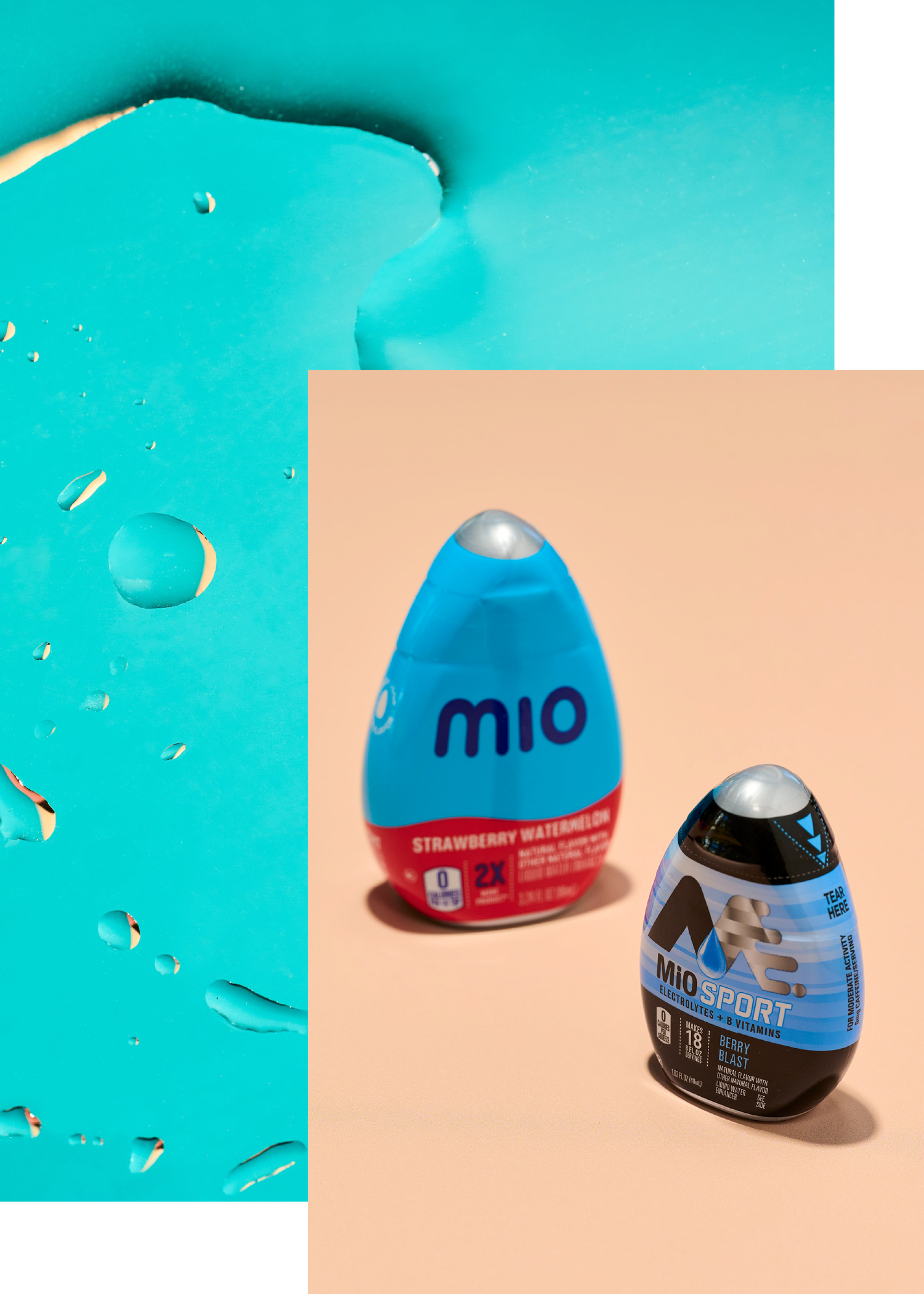
MIO Strawberry Watermelon Liquid Water Enhancer and MIO Sport Electrolytes + B Vitamins.
(Rebecca Peloquin / For The Times)
MIO Strawberry Watermelon Liquid Water Enhancer and MIO Sport Electrolytes + B Vitamins. “Out of all of these, MIO is probably one of my least favorites. The first is just a water flavoring, but all these additives — like sucrose acetate and Red 40 — they’re not good for you. Red 40 is a synthetic food dye. It’s considered safe, but a lot of people can have allergies causing headaches. It’s safe but not as good as Cure, which uses a natural additive like beet powder for color. Mio Sport uses Blue 1 for coloring, also a synthetic dye. It does contain B vitamins — B3, B6 and B12 — but not the complete B complex of eight B vitamins. It’s also not as strong of an electrolyte blend. Like Cure, it is missing your chloride and magnesium.”
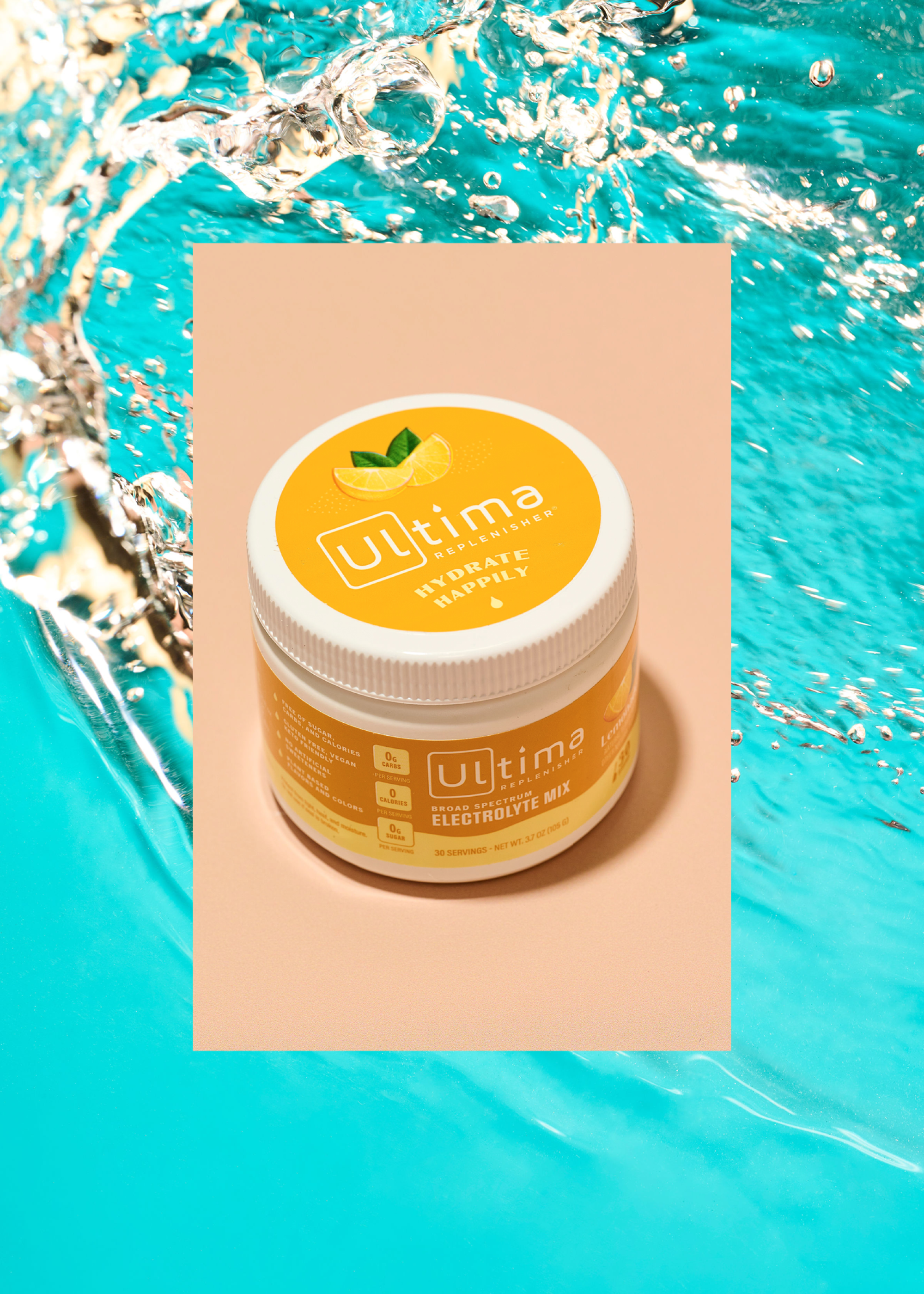
Ultima Replenisher, Broad Spectrum Electrolyte Mix.
(Rebecca Peloquin / For The Times)
Ultima Replenisher, Broad Spectrum Electrolyte Mix. “This one is OK from a standpoint that it’s going to flavor water and has the electrolytes that we’re looking for, like potassium, sodium, magnesium and chloride. But they’re relatively low amounts, containing one-sixth the amount of sodium in Nuun and Orgain; therefore, it is not for serious athletes.”
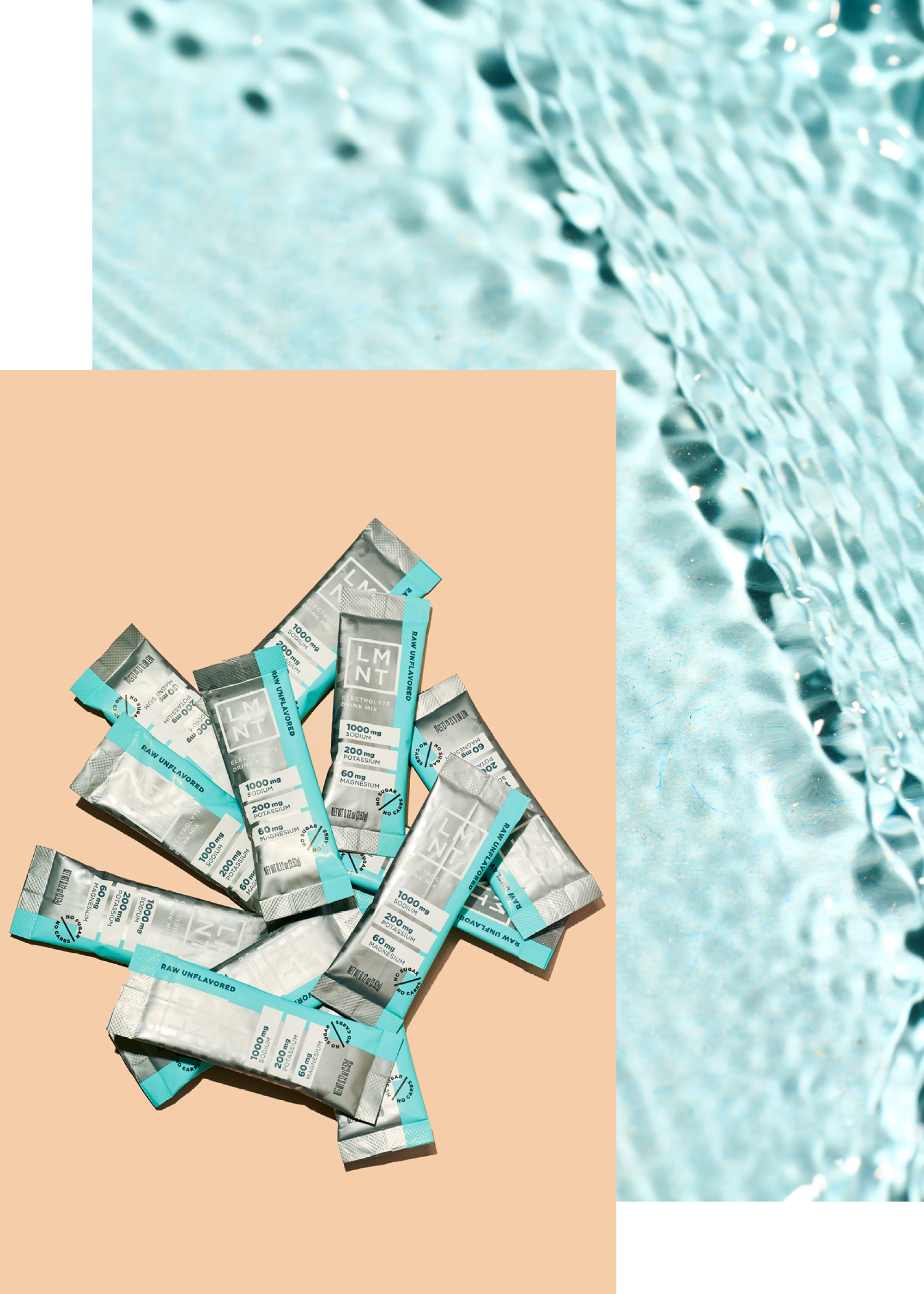
LMNT Zero-Sugar Electrolytes, Raw Unflavored.
(Rebecca Peloquin / For The Times)
LMNT Zero-Sugar Electrolytes, Raw Unflavored. “This is a clean, straightforward brand and zero calories — just your electrolytes. It isn’t flavored, though, so would not be an adequate water flavoring product. It would be good for a smoothie boost or if someone is on an elimination diet. But you’d need to add in a carbohydrate source, like fruit, for this to be more hydrating. It would have to be a whole lemon squeezed in. Or, if doing a smoothie, add a quarter cup of frozen berries to help absorb the electrolytes and help hydration.”
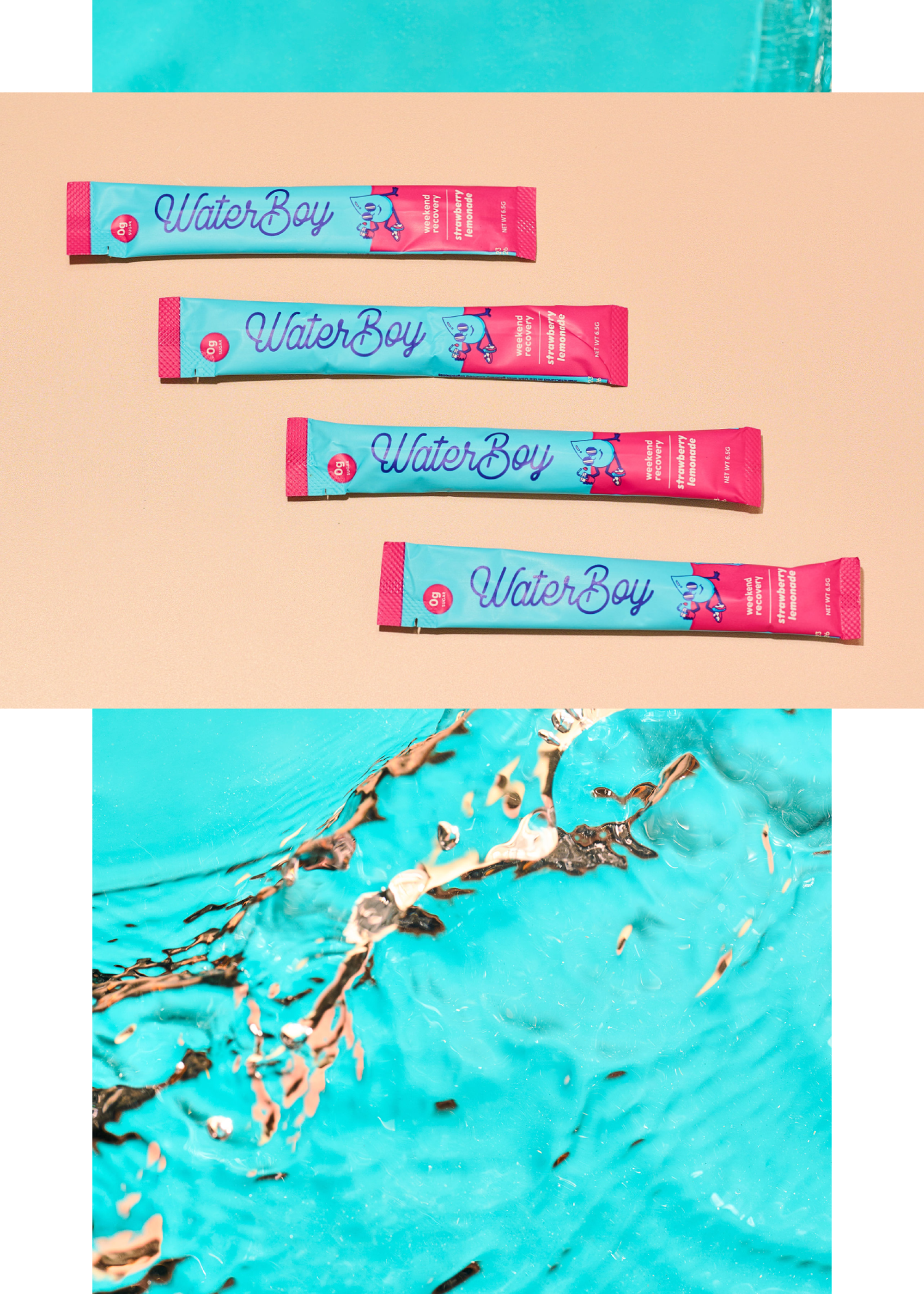
Water Boy Hydration Electrolyte Drink Mix for Weekend Recovery.
(Rebecca Peloquin / For The Times)
Water Boy Hydration Electrolyte Drink Mix for Weekend Recovery. “I was nervous about the high sodium content here. Sodium is the first ingredient and it’s almost 50% of your daily value. Compared to the other electrolytes — potassium, magnesium and chloride — the sodium is very high and the others are low. It’s a really odd balance. But it has zero sugar and it has only 1 gram of carbohydrates, which, from the ingredient list, I’m assuming is coming from a natural flavor or potentially the vegetable juice. But it’s not enough carbohydrates to balance out the high sodium content. This product is marketed as a ‘hangover’ cure because alcohol dehydrates the body; dehydration is a major contributor to hangover symptoms. Rehydrating the body using alkaline salt neutralizes the acid from alcohol and dehydration; however, this product would benefit from a better balance of all electrolytes, not just high amounts of sodium.”
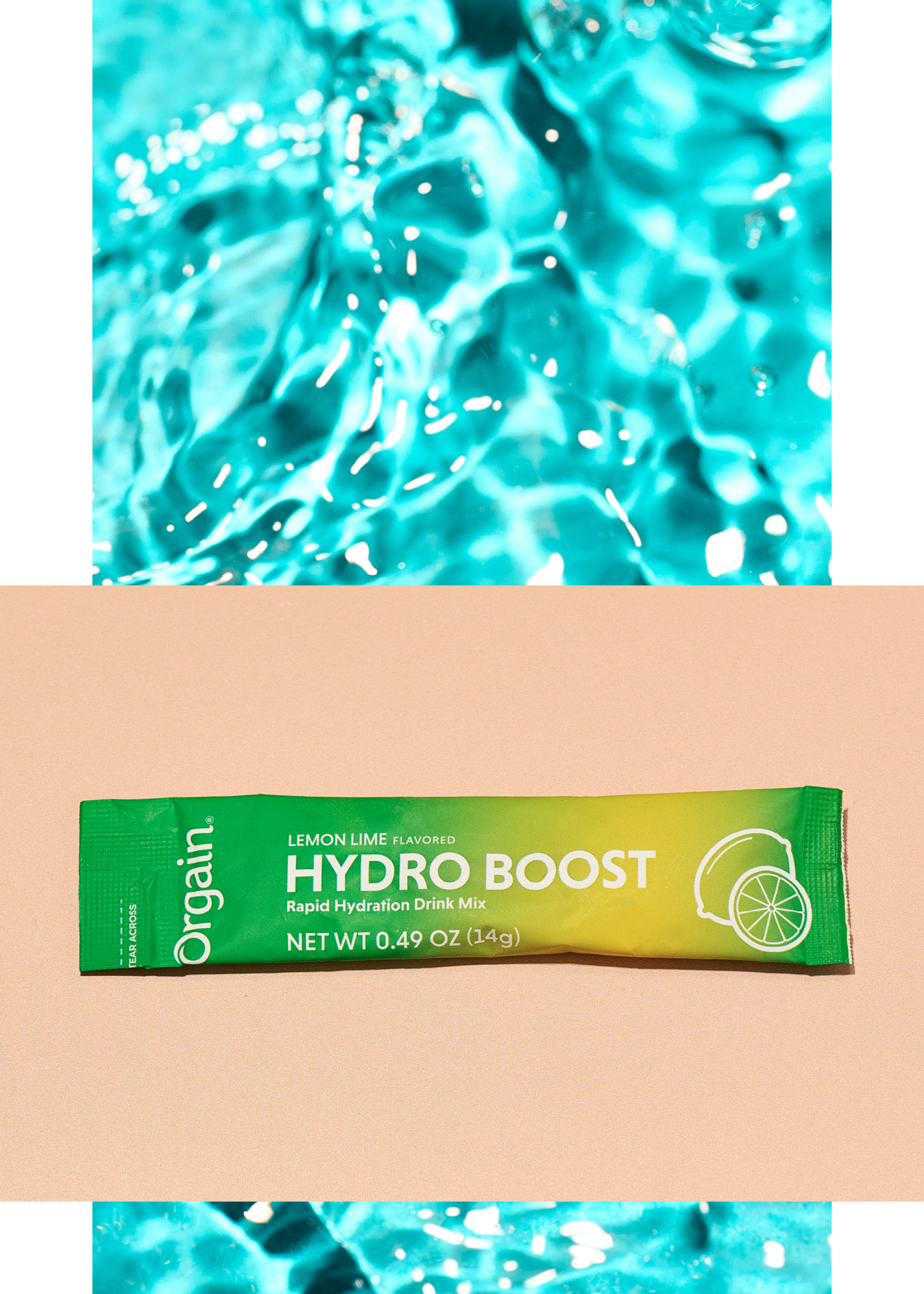
Orgain Hydro Boost, Rapid Hydration Drink Mix.
(Rebecca Peloquin / For The Times)
Orgain Hydro Boost, Rapid Hydration Drink Mix. “I like this one for athletes. Sugar is the first ingredient, but for athletes that would help absorb the electrolytes. And it would also replenish glucose storage in the muscles. And I like the balance of sodium and chloride here too. There’s also potassium. It’s missing magnesium, but because the sodium and chloride are so well balanced it outweighs that. There’s also no synthetic flavoring. It’s all things like organic lemon juice and organic monk fruit. It’s not for everyday use because of the high sugar content, but great for athletes for specific use like a long-intense bike training, high energy, intermittent workouts or an event, like a sports game.”
[ad_2]
Source link
